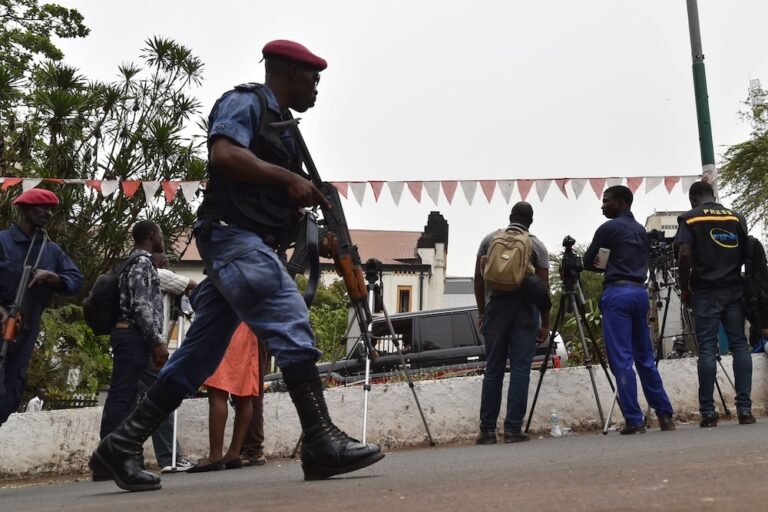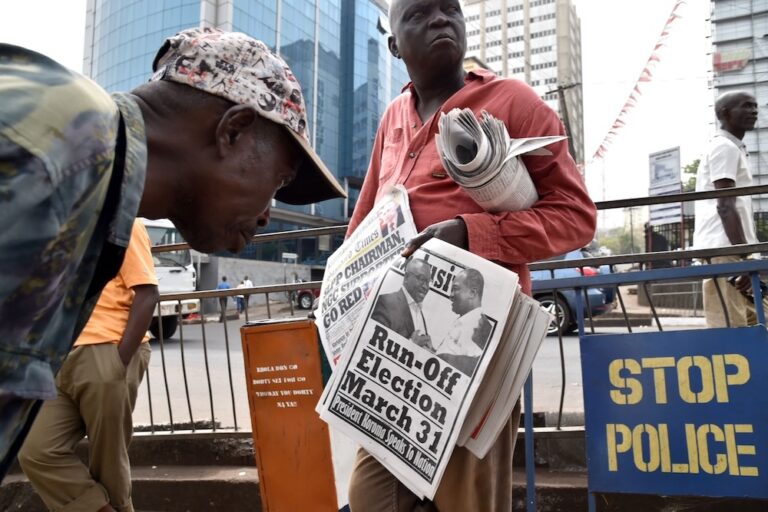(CPJ/IFEX) – CPJ is gravely concerned for the personal safety of journalist Winston Ojukutu-Macauley. On 18 April 1999, Ojukutu-Macauley, Freetown correspondent for the British Broadcasting Corporation (BBC), interviewed rebel leader Foday Sankoh – who was conditionally released the same day to attend peace talks in Togo – for that evening’s broadcast of the BBC programme […]
(CPJ/IFEX) – CPJ is gravely concerned for the personal safety of journalist
Winston Ojukutu-Macauley. On 18 April 1999, Ojukutu-Macauley, Freetown
correspondent for the British Broadcasting Corporation (BBC), interviewed
rebel leader Foday Sankoh – who was conditionally released the same day to
attend peace talks in Togo – for that evening’s broadcast of the BBC
programme “Focus on Africa.” On 20 April, the state-owned Sierra Leone
Broadcasting Service (SLBS) aired several programmes which accused
Ojukutu-Macauley of fabricating statements by Sankoh. CPJ is concerned that
given the number of violent attacks against the press in Sierra Leone, the
government’s public attack on Ojukutu-Macauley’s credibility could put the
journalist at risk by inciting mob violence.
During the “Focus on Africa” programme, Ojukutu-Macauley reported that
Sankoh said that Sierra Leoneans should stop talking about the Constitution,
and that if they continue to talk about the Constitution, there will not be
peace in Sierra Leone. Ojukutu-Macauley also reported that Sankoh said that
the government and the people of Sierra Leone should be willing to make
sacrifices. Sankoh’s statements are in dispute with the policy adopted by a
National Consultative Conference recently held by President Ahmed Kabbah.
The conference concluded that the Constitution does not allow for
power-sharing, and therefore, President Kabbah should not accept a
power-sharing agreement with the rebels during peace talks.


